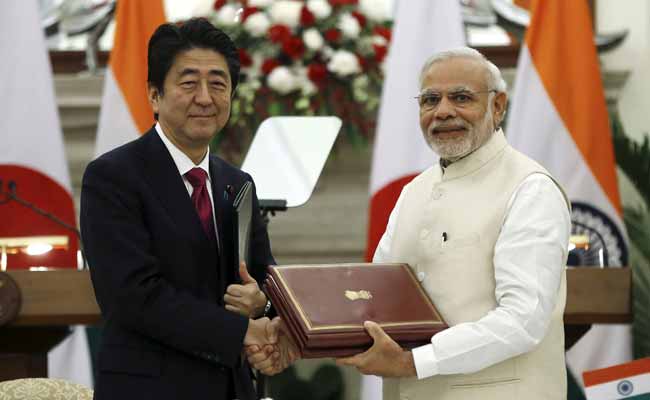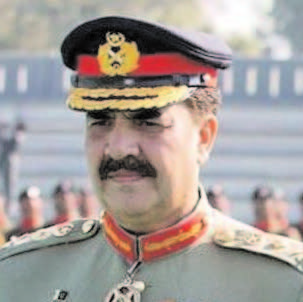
NEW DELHI (TIP): India has agreed to buy a high-speed bullet train from Japan, in an attempt to transform its creaking rail system. Japan will build India’s first bullet train and provide a $12bn package of financing and a low-cost, long-term loan for the effort, the countries announced on Saturday, December 12.
Prime Minister Shinzo Abe was welcomed in New Delhi by his Indian counterpart Narendra Modi who said Japan has played a “decisive role in India’s economic transformation”.
Prime Minister Narendra Modi said the train would link Mumbai and Ahmedabad, cutting travel time on the route from eight hours to two.
Last week Mr. Modi’s cabinet cleared the $14.7bn (£9.6bn) cost of building the bullet train system.
The agreements with Japan came during a three-day visit to India by the Japanese Prime Minister, Shinzo Abe.
The leaders of Asia’s second and third largest economies also announced other areas of co-operation, including, working on defense technology, and agreeing a memorandum of understanding on the peaceful use of nuclear energy.
Abe referred to India’s stand that it would continue a moratorium on nuclear tests and advance its use of nuclear energy for peaceful purposes.
India, which has 21 nuclear power plants, has ambitious plans to quadruple its current 5,000 megawatts of nuclear power to 20,000 megawatts by 2020 to fuel the energy demands of its booming economy.
The two countries also signed a deal that would help India’s efforts to upgrade its military equipment. Japan’s possible sale of US-2 amphibious aircraft to India would be Tokyo’s first major military hardware transfer since lifting a postwar ban on the export of defense equipment in 2014.
The latter agreement is expected to allow Japan to export nuclear plant technologies to India.
Both countries are in territorial disputes with China, and their new accords may be seen by some as a reaction against China’s growing influence in the region.
Japan has in the past shunned civil nuclear cooperation with India, which has not ratified the international Non-Proliferation Treaty, but appears to have softened its stance.
The announcements came after Abe lavished praise on Modi’s 18-month-old premiership following a meeting with business leaders in the capital.
“Prime Minister Modi’s economic policies are like Shinkansen – high speed, safe and reliable while carrying many people along,” he said.
Both Modi and Abe are right-wing nationalists and economic reformers who have forged an unusually close relationship since the Indian leader came to power last year, partly to counter China’s growing influence.
The leaders of Japan and India, Asia’s second and third-largest economies, promised to use their alliance to push areas of mutual interest, including reform of the UN Security Council, on which both are seeking permanent seats.
Modi, who hopes to attract foreign investment under his key Make in India campaign, lauded the recent decision by Japanese-owned carmaker Maruti Suzuki to begin the first exports of Indian-made cars to Japan.
India’s economic growth accelerated to 7.4 percent in the second quarter of the financial year, figures released in November showed, outperforming China.




Be the first to comment